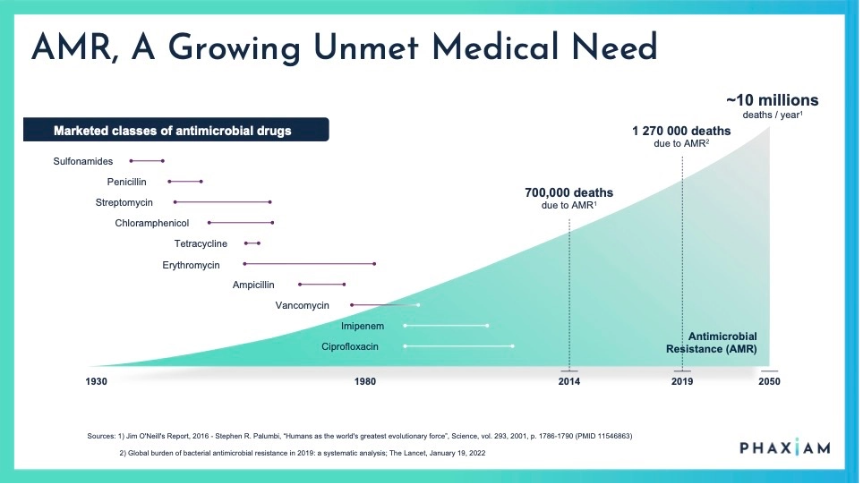Antibiotic resistance is a major global public health problem, responsible today for over 1 million deaths a year worldwide, and which could, according to the World Health Organization, cause 10 million deaths a year by 2050 if nothing is done.
In July 2022, the European Commission and member states identified antibiotic resistance as one of the three main priority health threats.
On June 13, 2023, the European Council adopted a recommendation on stepping up EU action against antimicrobial resistance as part of the “One Health” approach.
In September 2024, two major actions reaffirmed the urgency of tackling antimicrobial resistance. First, an extensive study published by The Lancet, one of the world’s most influential medical journals, highlighted the growing scale of the threat. Additionally, at the 79th United Nations General Assembly (UNGA), world leaders committed to reducing the 4.95 million annual deaths caused by antimicrobial resistance (AMR) by 10% by 2030.



